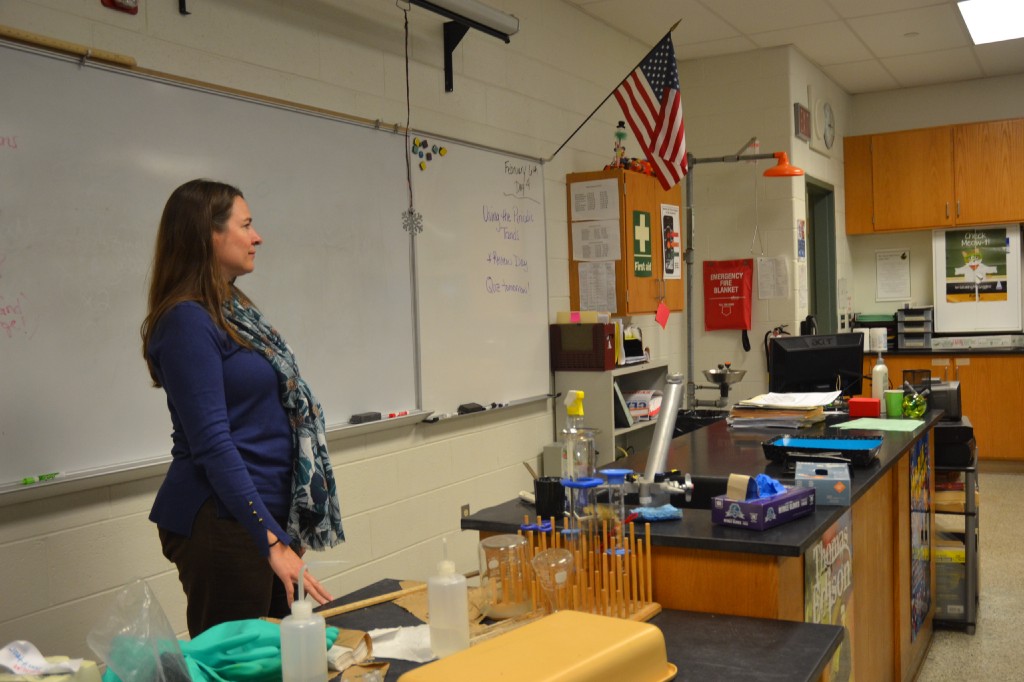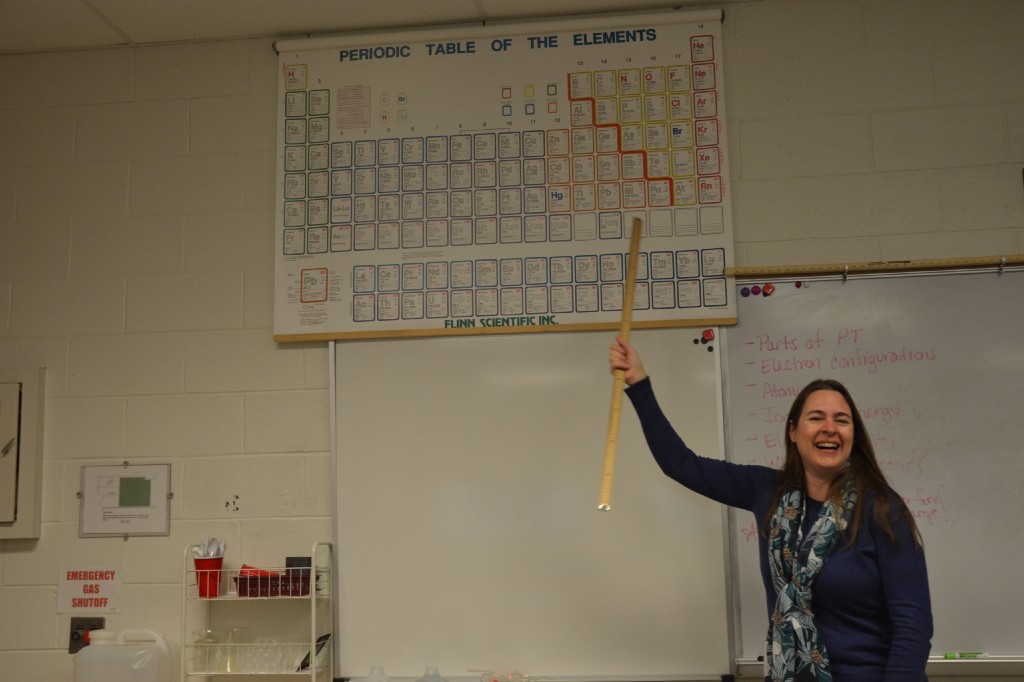
Seneca High School’s Dusty Carroll named 2018–2019 Teacher of the Year

By Krista Cerminaro
There are all sorts of bonds being made in a chemistry classroom — covalent bonds, ionic bonds, hydrogen bonds.
In Dusty Carroll’s classroom, however, a bond unlike the rest of them is the one she shares with her students.
According to Carroll, her class is one where students are not afraid to make mistakes. Perhaps, that’s why the chemistry and engineering teacher at Seneca High School was recently recognized as the school’s 2018–2019 Teacher of the Year.
“I don’t know if it’s just because that’s the nature of chemistry, or anything particular that I do, but I think that’s the coolest part of my classroom — that they’re not afraid to make mistakes — because they often start very afraid to make mistakes,” Carroll, who’s been teaching at Seneca for 14 years, said. “If you’re afraid to make mistakes all the time, you’re not going to take risks.”
Carroll noted her students’ resilience as something that has always stood out and inspired her. “I was always impressed by their ability to rebound,” Carroll said. “They’re pretty inspiring in their resilience.”
It was the students themselves who pushed Carroll, who’s been teaching for 19 years, to pursue education.
“A friend of mine had convinced me to be a track coach, and so the kids on the track team were actually who convinced me to be a teacher — it never had even crossed my mind,” Carroll said. “That was kind of my first experience with high school kids, and they were just really cool. They were honest, and they were pretty funny, and they would tell me when I needed to be more strict,” Carroll joked.

Carroll, who coached track and gymnastics for most of her time at Seneca, now advises the STEM Club.
“When I was in high school, chemistry was my favorite subject, because it was the only one that really, really made me think,” Carroll said. “I had a teacher — it was the first teacher I ever had who was disappointed in me once when I got a C, and for some reason that just really struck me.”
Carroll said while she knows science is a tough subject, she keeps her students motivated to overcome the challenges by keeping the classroom’s atmosphere casual, and getting down to their level.
“I’m always willing to help them, and they know I’m not going to let them fail or lose track, so I think that is probably one of the biggest motivating factors,” Carroll said. “I encourage the openness. And it’s not always successful in every classroom, but I can actually ask the kids ‘who doesn’t understand?’ and they will raise their hand. And that tells you that there’s a trust there,” Carroll said. “Making it that environment where making mistakes is perfectly normal and OK, and that’s how we learn — I think that’s maybe something that sets my class apart from others.”
Carroll said the most rewarding part of teaching is seeing her students stop giving up.
“Science is hard. So many kids come into this class absolutely thinking they can’t do science, and that, you know, science is their ‘bad subject.’ So, when I see that turn around — that’s why I keep doing this,” Carroll said. “It’s like I’ve made an impact on their ability to persist [and] to be OK with challenges.”
Carroll said getting her students to think harder without overwhelming them is a careful balance.
“They sometimes think they don’t know how to think, or they don’t know how to learn. You have to kind of prod them along a little bit, and so I’m forgiving in a lot of ways, and I try to let them know that they can do it,” Carroll said. “If you can stop them from turning off because they think it’s too hard, then you sort of won.”
Though she’s constantly making them think harder, Carroll noted one trait of ultimate importance: “I’m never afraid to be a person with them.”









